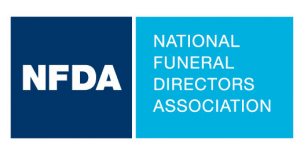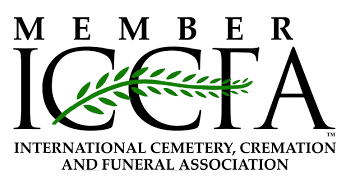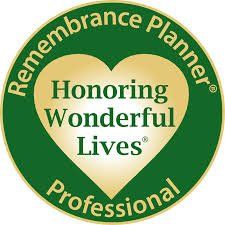Planning a Funeral Service in Tennessee
Loss is something that everyone experiences during their life. However, if you have the responsibility of planning a funeral for the first time, you might be unsure of what to do when someone dies. In addition to dealing with the grief of losing someone, you now have the responsibility to handle the funeral arrangements. It’s natural to feel confused or overwhelmed about this. Rest assured, we have the experience and resources to help you plan a meaningful service of remembrance.
If you have just experienced the loss of a loved one, please accept our condolences and know that our staff is here to assist you. If you’re unclear about what to do when someone dies, we would be honored to work with you and tailor a service that meets your family’s needs. In the meantime, we’ve created a funeral planning guide to help you navigate what lies ahead.
What to do When Someone Dies
Preparing for a funeral and making sure you honor your loved one with dignity and respect doesn’t have to be difficult or stressful. Our caring and dedicated staff will be here from the first call until long after the service has ended to provide the support and resources you need. If you have any questions, we would be happy to speak with you so that you can make informed decisions. To help you get started with preparing for a funeral, check out our funeral planning checklist below.
Funeral Planning Checklist
- Contact the funeral home and arrange for removal of your loved one from the place of death.
- Review the deceased's will. If the will does not specify the deceased’s preference for burial or cremation, you will then have to choose between the two.
- Consider funeral expenses. Think about what your family can afford and how you will pay.
- If you wish to hold a ceremony, you need to choose the type of ceremony – a traditional funeral, a memorial service, a celebration of life, etc.
- Meet with one of our funeral directors to create and finalize the funeral arrangement details.
- Select the appropriate funeral products and accessories to help honor your loved one – a casket, headstone, urn, flowers, prayer cards, photos, etc.
- Choose the music or hymns to be played during the service
- Make note of any important details you or the deceased would want in the obituary.
- If your loved one was in the military, see if he/she is eligible for veteran death benefits.
- Organize who will be saying prayers, the eulogy, and other remarks during the ceremony. Also select the prayers to be said and prepare the eulogy.
- Think about logistics. Plan where the ceremony will take place, the valet to pick up your family members, and how your loved one will be transported. You may need to consider which church to have the funeral, and which cemetery your loved one should be laid to rest at.
- Notify family and friends of when and where the ceremony will take place.
What To Do After The Funeral/Other Things To Do When Someone Dies
Even after the funeral arrangements have been completed, there are other tasks that need to be tended to. In most cases, many of these will be handled by the estate’s executor. With that in mind, if you are arranging the funeral service details, you will likely share some of the responsibility for settling the estate as well.
Please keep in mind, this information should be used as guidance only and not actual legal advice. If you have any questions about settling an estate, it is best to speak with an attorney.
Finances and Property
When someone passes away, their accounts are not automatically closed, and property ownership isn’t immediately transferred. Upon learning of a loved one’s passing, the executor(s) should locate the deceased’s will to review any bank accounts, investments, creditors, benefits, insurance policies, and any other legal or financial accounts that are open in the deceased’s name.
After reviewing the will, they next need to review and notify any businesses that have ongoing business with the deceased. This is very important as these institutions need to know if payments should be suspended. Lastly, the executor should review and decide whether to delete or close any online accounts of the deceased.
Children and Pets
If the deceased has any minor children or pets, it’s imperative that they are cared for. The executor should review the will and consult with family and friends to determine whose care the children or pets will be placed in. In the case of children, the deceased’s will likely state who will become the children’s legal guardian.
In the case of pets, you may need to consult with family and friends until a permanent home can be found. According to the Humane Society of the United States, it is estimated that more than 100,000 pets are placed in shelters each after their owners pass away. To make sure this doesn’t happen to your loved one’s pet, make sure you talk to family and friends to see if anyone is able to care for the pet over the coming days or weeks.
Dressing the Occasion
Get Physically, Mentally, and Emotionally Prepared
Maintain a state of "mindful awareness."
Do everything you can to stay physically healthy.
The list of physical symptoms of grief is long: fatigue, body aches and pains, loss or change of appetite, shortness of breath, digestive issues, feelings of heaviness, and tightness in your throat or chest. When faced with an onslaught of physical symptoms like these, it's hard to know exactly how to deal with them. The first step is to recognize and name what your body is experiencing. Only then can you do something to change the way you're reacting to the loss. During these days before the funeral:
- Stay hydrated: drink eight (8 ounce) glasses of water.
- Eat regularly: small meals and snacks are often better-accepted than large, calorie-laden ones.
- Rest regularly: you may find nights are long and sleepless, so don't be adverse to taking short cat-naps throughout the day.
- Move your body: take a walk or hike, go to the gym, or enjoy a leisurely swim.
- Nurture your senses: listen to music or the sounds that abound in nature.
- Engage in prayer or meditation: tap into, or get reacquainted with, your spiritual side.
- Reduce your list of necessary activities and chores: now is the time to delegate tasks to others, so you can devote your time to self-care.
Reach out to your support network.
Neighbours, friends and family members can be your lifeline right now—and some of them may even be coming to you right now to see how they can help. Don't turn them away; instead, give them the opportunity to give the gift of service. Allow them to walk this path with you for as long as, and in whatever ways, they can. The same goes for the network of professional caregivers: don't neglect to turn to clergy, your family physician, therapist, or grief counsellor if you feel your bereavement to be more than you can handle (now, or at any time in the future).
Prepare to speak less and listen more.
Let Us Help with Your Funeral Preparations
- Shakespeare, William, "Henry V"
- Petch , Alison, "Funeral and Mourning Clothing", England, the Other Within, accessed March, 2015











